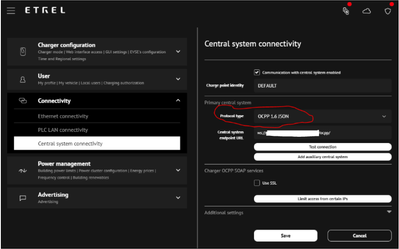Difference between OCPP SOAP and JSON protocol?
For JSON (supported by INCH) you need to establish connection only in direction from charger to the Ocean (backend). When communication is established, then it will work in both directions.
For SOAP, you need to establish communication in both directions separately. Make sure you enter correct backend URL and charge point identity. Charging station vendor will give you information which ports needs to be redirected for remote access, accepting commands from backend, ...
There are no NAT settings required if you are connecting INCH to Ocean by using Protocol type: OCPP 1.6 JSON.
If you would like to access charger web interface remotely or if you would like to use OCPP 1.6 SOAP then port 80 of the charger should be reachable from Internet.
INCH charger is actually using these ports:
* TCP 80: Charger web interface and OCPP SOAP services
* TCP 443: Not available yet, but will be in the future. Same functions as on port 80, but secure.
* TCP 21: FTP - used only for remote maintenance
* TCP 23: Telnet - used only for remote maintenance
Open these ports based on the maintenance level that you would like reach.
A. All ports open to have full access:
In this case NAT could be:
external port internal port
10000 80
10001 443
10002 21
10003 23
B. Only remote web access for accessing full configuration (or in the case of SOAP protocol)
In this case NAT could be:
external port internal port
10000 80
10001 443
C: No remote access to the charger web and OCPP 1.6 JSON protocol type used
No port on NAT opened
